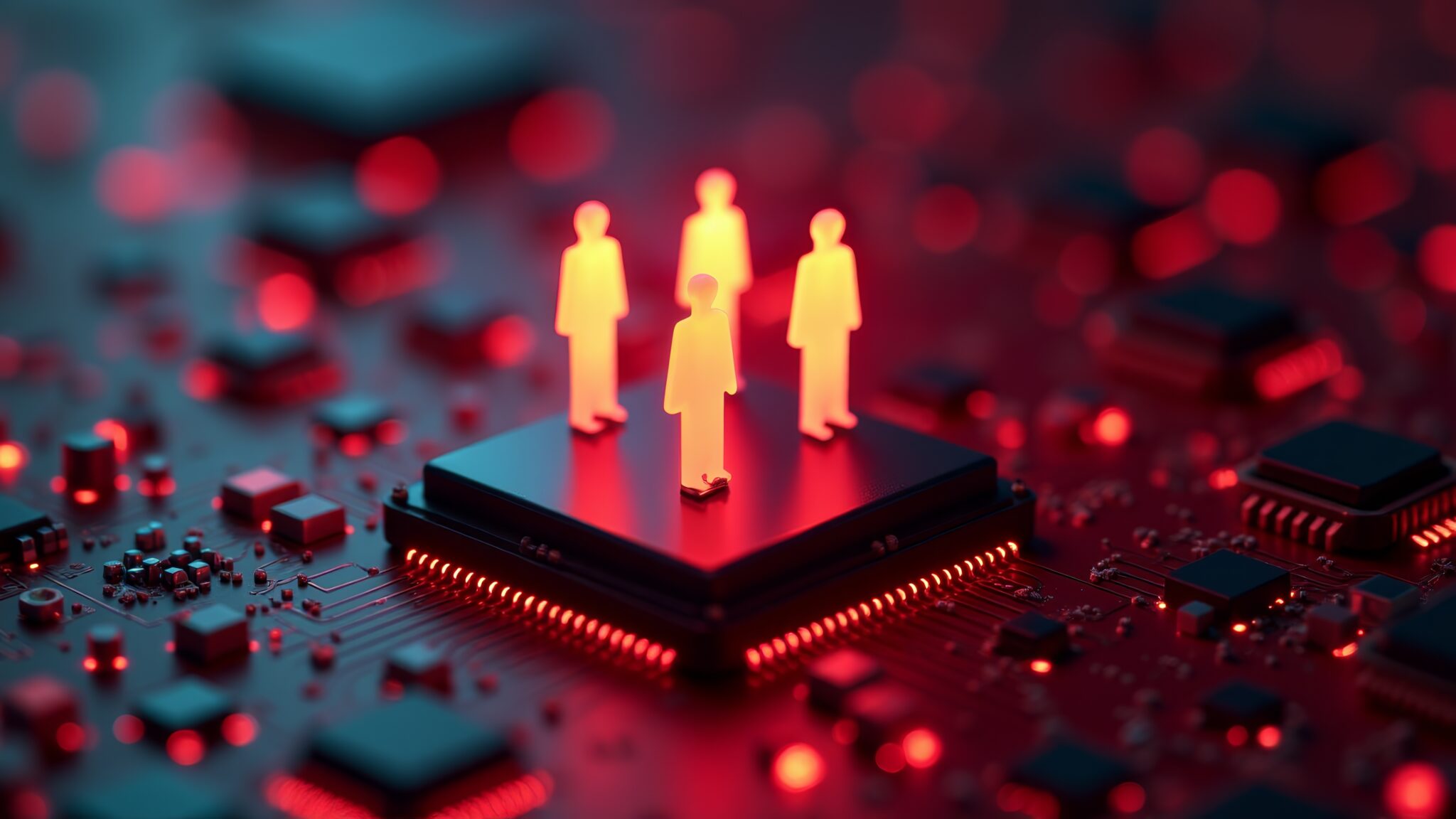In an era where AI is rapidly transforming business operations, a recent working paper, “The Cybernetic Teammate: A Field Experiment on Generative AI Reshaping Teamwork and Expertise,” describes research that explored how generative AI is reshaping teamwork and expertise in organizational settings. This research, conducted through a large-scale field experiment at Procter & Gamble (P&G), offers critical insights into the impact of AI on collaborative work, challenging traditional notions of team dynamics and knowledge sharing.
Authors who collaborated on the research from Harvard Business School (HBS) and the Digital Data Design (D^3) Institute at Harvard include Fabrizio Dell’Acqua, Postdoctoral Research Fellow and Teaching Fellow at HBS and the Laboratory for Innovation Science at Harvard (LISH); Raffaella Sadun, HBS Professor of Business Administration and Principal Investigator in the D^3 Digital Reskilling Lab; and Karim R. Lakhani, HBS Professor of Business Administration, Founder and Co-Director of LISH, and Co-Founder and Chair of D^3. Other authors include Charles Ayoubi, Professor at the ESSEC Business School; Hila Lifshitz, Professor at Warwick Business School and affiliate of the LISH; Ethan Mollick, Associate Professor and Co-Director, Generative AI Labs at Wharton School, University of Pennsylvania; Lilach Mollick, Co-Director of the Wharton Generative AI Labs; and from Procter & Gamble, Yi Han, Group Scientist; Jeff Goldman, Vice President, Data Science; Hari Nair, Vice President, R&D Fabric & Home Care Global Packaging, Learning Lab and Partner Lab; and Stew Taub, Vice President R&D, Global Feminine Care.
Key Insight: AI as a Performance Enhancer
“Teams and individuals without AI spent similar amounts of time on tasks. However, the introduction of AI substantially reduced time spent working on the solution: individuals with AI spent 16.4% less time than the control group, while teams with AI spent 12.7% less time.” [1]
The researchers found that AI significantly enhances performance in collaborative work environments. Their experiment revealed that individuals using AI could match the performance levels of traditional two-person teams. The result implies that AI is capable of reproducing certain benefits typically gained through human collaboration, potentially revolutionizing how organizations structure their teams and allocate resources.
The study showed that teams without AI demonstrated a quality improvement of 0.24 standard deviations over individuals without AI, emphasizing the well-known advantages of working together. However, the impact of AI was even more considerable, with AI-enabled individuals and teams showing improvements of 0.37 and 0.39 standard deviations, respectively.
Key Insight: Breaking Down Functional Silos
“Without AI, we observed clear professional silos – Commercial specialists proposed predominantly commercial solutions while R&D professionals favored technical approaches.” [2]
Dell’Acqua et al. discovered that AI integration leads to a significant breakdown of functional silos within organizations. The research demonstrated that when using AI, both commercial and technical professionals produced more balanced solutions, regardless of their professional backgrounds. This finding suggests that AI can help bridge the gap between different areas of expertise. At P&G, the experiment simulated the company’s existing new product development processes, with an emphasis on the initial phases where fresh ideas emerge and begin to take shape.
The study found that without AI, the distribution of ideas showed a bimodality coefficient of 0.564, indicating a clear division between technical and commercial orientations. However, AI-enabled teams showed a more homogeneous, unimodal distribution with a bimodality coefficient of 0.482, while keeping the overall amount of technical content consistent.
Key Insight: AI as a Social and Emotional Catalyst
“[I]ndividuals using AI report positive emotional responses that match or exceed those of team members working without AI.” [3]
Contrary to concerns about technology’s negative impact on workplace dynamics, the study found that AI integration led to enhanced positive emotional experiences. Participants who used AI reported notably greater positive emotions (excitement, energy, and enthusiasm) and reduced negative emotions (anxiety and frustration) compared to those working without AI.
Compared to the control group, individuals with AI demonstrated a 0.457 standard deviation increase in positive emotions, while teams with AI showed a standard deviation increase that was even greater, at 0.635. Both individuals and teams reported feeling significantly fewer negative emotions when using AI (-0.233 and -0.235 standard deviations respectively).
Key Insight: Democratizing Expertise
“Workers without deep product development experience, for example, can leverage AI’s suggestions to bridge gaps in knowledge or domain understanding, effectively replicating the knowledge integration typically achieved through human collaboration.” [4]
The research suggests that AI has the potential to democratize expertise within an organization. By providing access to a vast knowledge base and the ability to generate context-specific insights, AI allows less experienced workers to perform at levels that previously required either direct collaboration or supervision by more experienced colleagues.
Why This Matters
For business leaders and executives, the findings of Dell’Acqua et al. have profound implications for organizational design and workforce management. The ability of AI to enhance individual performance to team-level quality, break down professional silos, and positively impact emotional experiences in the workplace suggests a need to rethink traditional team structures and collaboration models. As organizations continue to integrate AI technologies, understanding these dynamics will be crucial for optimizing productivity, fostering innovation, and maintaining employee satisfaction. The research points to a future where AI acts not just as a tool, but as a “cybernetic teammate,” reshaping the nature of collaborative work and expertise sharing in the modern workplace.
References
[1] Fabrizio Dell’Acqua, et al., “The Cybernetic Teammate: A Field Experiment on Generative AI Reshaping Teamwork and Expertise”, Harvard Business School Working Paper 25-043 (March 21, 2025): 56, 15.
[2] Dell’Acqua et al., “The Cybernetic Teammate: A Field Experiment on Generative AI Reshaping Teamwork and Expertise”, 21.
[3] Dell’Acqua et al., “The Cybernetic Teammate: A Field Experiment on Generative AI Reshaping Teamwork and Expertise”, 16-17.
[4] Dell’Acqua et al., “The Cybernetic Teammate: A Field Experiment on Generative AI Reshaping Teamwork and Expertise”, 4.
Meet the Authors
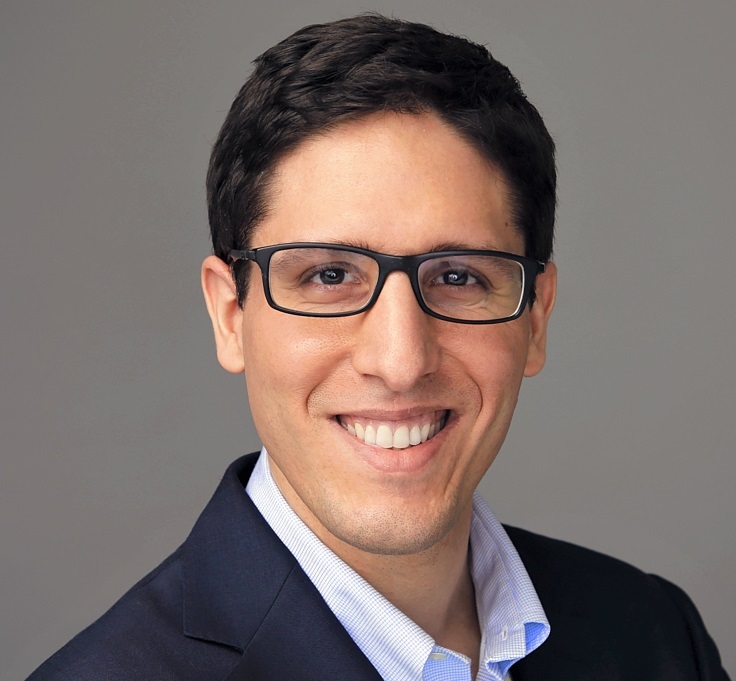
Fabrizio Dell’Acqua is a Postdoctoral Research Fellow and Teaching Fellow at HBS and the Laboratory for Innovation Science at Harvard (LISH). He earned his PhD in Management from Columbia Business School. Fabrizio’s research looks at automation, human/AI collaboration, and business ethics. He serves on the Steering Committee of the Generative AI Working Group at the D^3.

Charles Ayoubi is an Assistant Professor at ESSEC Business School and was a postdoctoral fellow at HBS and the LISH. His studies look at a range of organizations, such as universities, big corporations, tech firms, scientific funding agencies, and national research institutions. He completed a double degree between Centrale Paris and ESSEC Business School, followed by a master’s degree in Maths (Probabilities and Statistics) at Université Pierre et Marie Curie (UPMC) and a master’s degree in Economics at Université Paris Sud. He pursued a PhD in Economics of Innovation at Ecole Polytechnique Fédérale de Lausanne (EPFL) in Switzerland.

Hila Lifshitz-Assaf is a Professor of Management at Warwick Business School and an affiliate of the LISH. Her research focuses on developing an understanding of the micro-foundations of scientific and technological innovation and knowledge creation processes in the digital age. Professor Lifshitz-Assaf earned a doctorate from HBS, an MBA, a BA in Management, and an LLB in Law from Tel Aviv University, Israel.
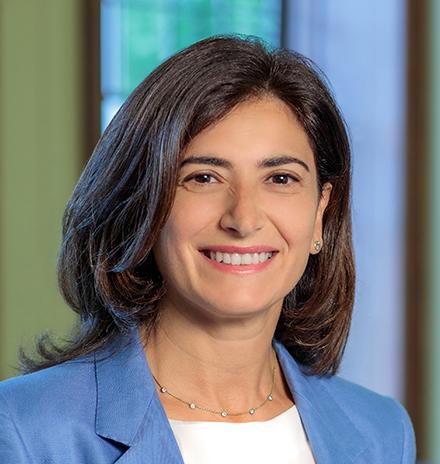
Raffaella Sadun is Charles E. Wilson Professor of Business Administration at Harvard Business School, and is a Co-Chair of Harvard Business School’s Project on Managing the Future of Work and co-PI of the Digital Reskilling Lab. Her research focuses on managerial and organizational drivers of productivity and growth in corporations and the public sector.
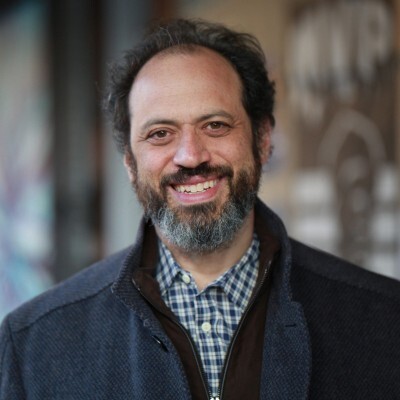
Ethan Mollick is an Associate Professor at the Wharton School of the University of Pennsylvania, where he studies and teaches innovation and entrepreneurship, and examines the effects of artificial intelligence on work and education. Ethan is the Co-Director of the Generative AI Lab at Wharton, which builds prototypes and conducts research to discover how AI can help humans thrive while mitigating risks. Mollick received his PhD and MBA from MIT’s Sloan School of Management and his bachelor’s degree from Harvard University.

Lilach Mollick is the Co-Director of the Wharton Generative AI Labs, which builds prototypes and conducts research to discover how AI can help humans thrive while mitigating risks. Prior to the Generative AI Lab at Wharton, she was the director of pedagogy at Wharton Interactive, focused on developing pedagogical strategies for interactive teaching, including innovative learning approaches through alternate reality games and simulations. She earned her MS and EdD from New York University.

Yi Han is a Group Scientist at Procter & Gamble, with years of experience in industrial innovation, technology development in new product development, lean innovation, project management, data science, modeling, and simulation disciplines. He earned his Bachelor of Engineering and Master of Science degrees from Xi’an Jiaotong University and his PhD from Iowa State University.
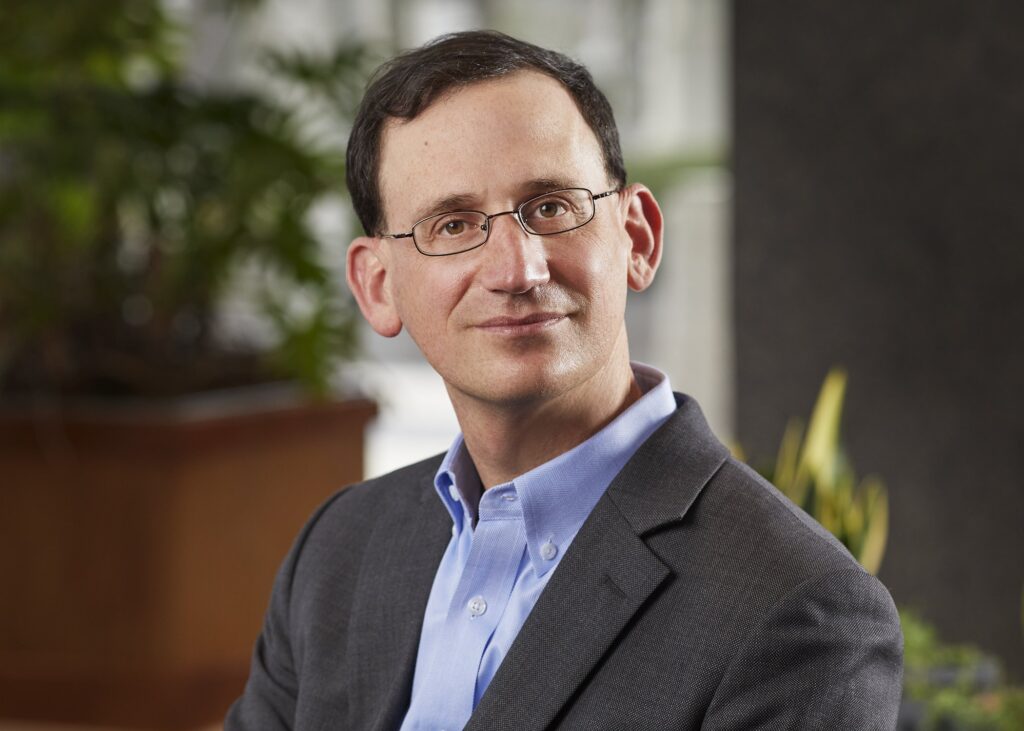
Jeff Goldman is the Vice President, Data Science at Procter & Gamble. He has been with the company for over 25 years and has deep experience building and leading analytic organizations in the United States, Europe, and Asia. He obtained his BA and MENG degrees from Cornell University.

Hari Nair is the Vice President of R&D Fabric & Home Care Global Packaging Learning Lab and Partner Lab at Procter & Gamble. He is a thought leader and expert in applying innovation and new business models in emerging markets and has advised several Fortune 500 companies. He was an Advanced Leadership Initiative Fellow and a Visiting Scientist at the Harvard T.H. Chan School of Public Health before joining Procter & Gamble R&D. He earned his BSc in Chemical Engineering from the University of Wisconsin-Madison.

Stew Taub is the Vice President of R&D for Global Feminine Care at Procter & Gamble. He has a long track record in innovation in consumer product, package, and process development in both developed and developing markets. He earned his BS in Chemical Engineering from Cornell University.
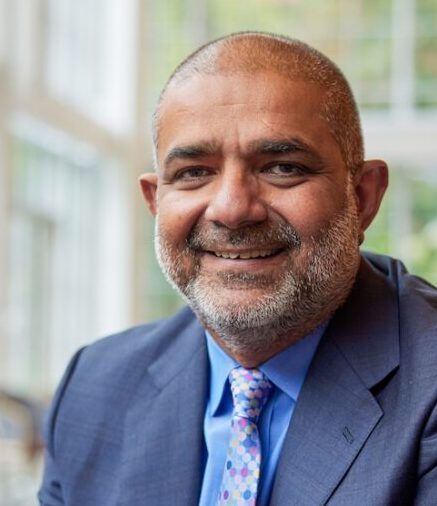
Karim R. Lakhani is the Dorothy & Michael Hintze Professor of Business Administration at the Harvard Business School. His innovation-related research is centered around his role as the founder and co-director of the Laboratory for Innovation Science at Harvard and as the principal investigator of the NASA Tournament Laboratory. He is also the co-founder and chair of the The Digital Data Design (D^3) Institute at Harvard and the co-founder and co-chair of the Harvard Business Analytics Program, a university-wide online program transforming mid-career executives into data-savvy leaders.
